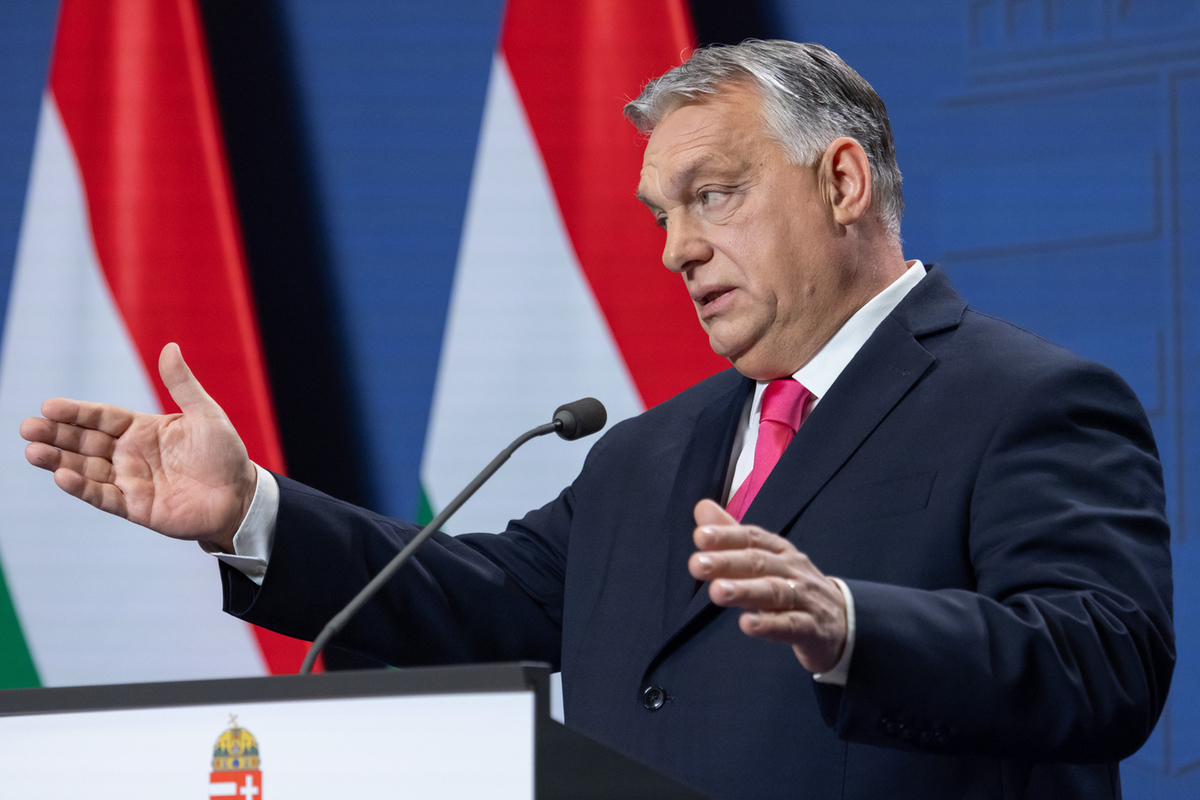Brussels cruelly deceived Orban with the allocation of 50 billion aid to Ukraine: what happened
[ad_1]

EU leaders meeting in Brussels on Thursday, February 1, unanimously agreed to provide assistance to Ukraine in the amount of 50 billion euros. However, this plan has its reservations, and the agreement will be discussed annually. European officials were worried that Hungarian Prime Minister Viktor Orban would veto the financial project. However, this did not happen. Let’s figure out why this happened.
EU leaders unanimously agreed on Thursday to provide Ukraine with 50 billion euros in new aid. This was announced by the President of the European Council Charles Michel.
“We have an agreement. All 27 leaders agreed on an additional support package for Ukraine in the amount of 50 billion euros as part of the EU budget. This provides stable, long-term and predictable financing for Ukraine. The EU takes leadership and responsibility for supporting Ukraine, we know what is at stake,” said Charles Michel on his page on the social network X.
The plan is to help cover Ukraine’s needs in 2024-2027 with €33 billion in loans and €17 billion in grants.
According to Reuters, the agreement was reached after weeks of disputes with Hungarian Prime Minister Viktor Orban, who vetoed the aid package in December last year.
Before the summit, the agency emphasizes, EU leaders put pressure on Hungary to lift the blockade, telling Orban that he would have to “choose sides in an existential challenge.”
The leaders of Germany, Poland, Belgium and Finland, among others, arrived at the EU summit in Brussels to say how important it was that the 27-nation bloc as one agreed to offer aid to Kiev from their joint budget until 2027.
Viktor Orbán did not speak much to journalists upon his arrival at the summit. The Hungarian prime minister only noted that before the closed talks he had a “casual morning conversation” with the leaders of France, Germany, Italy and senior EU officials.
Let us recall that European funds for Ukraine have been blocked since December after Hungary vetoed the deal at the previous summit. On the eve of the meeting of the member countries of the “European family” on February 1, the bloc increased pressure on Orban, although skepticism was expressed about the success of such an event. Simply put, everyone admitted that the adoption of the agreement came as a surprise to everyone. But European diplomacy operates according to a proven pattern of pressure. The “clean European boys” simply deceived Orban in droves.
In order to win Budapest over to its side, the European bloc proposed holding annual debates on the issue of providing assistance to Kyiv, as well as revising the agreement every 2 years. But there is a very subtle trick here: the words “if necessary” were added to the wording about “reviewing the budget every 2 years.” A senior European diplomat told CNN that the wording is critical because it prevents Orbán from giving Orbán a full veto.
Initially, it was clear that the bloc would try by all means to push through its interests in order to help its “Ukrainian wards.” And these methods will obviously not be so clean. On Sunday, the Financial Times quoted an EU document that made it clear that the bloc would sabotage Hungary’s economy if Budapest blocked aid at the February 1 summit.
“The document prepared by Brussels bureaucrats only confirms what the Hungarian government has been saying for a long time: access to EU funds is being used by Brussels for political blackmail,” Hungarian EU Affairs Minister Janos Boka said at the time.
On Monday, a high-ranking EU official, naturally, hastened to refute this information. He argued that the document was a briefing note that “does not set out any specific plan.”
But somehow too many coincidences and confirmations of coercion of Budapest by the “collective Brussels” began to appear, especially after the adoption of the agreement. One official on the sidelines of the summit admitted to The Guardian that Orban knew the game was up: “The last few weeks have shown great unity among the 26 EU members… It was clear that Orban was alone.”
It is significant that Orban himself, despite the fact that so much attention was focused on him in the morning, did not publicly react in any way to the acceptance of 50 billion euros for Ukraine. The Hungarian Prime Minister did not speak to the press or publish anything on social networks.
It sounds harsh, but delegates from some key member states involved in the negotiations admitted: “Orbán got nothing.” That is, apart from the vague wording about discussing and revising the agreement, there are absolutely no other “goodies”. It has been confirmed that the deal outlined by Charles Michel does not even open up frozen EU funds to Hungary.
[ad_2]
Source link








